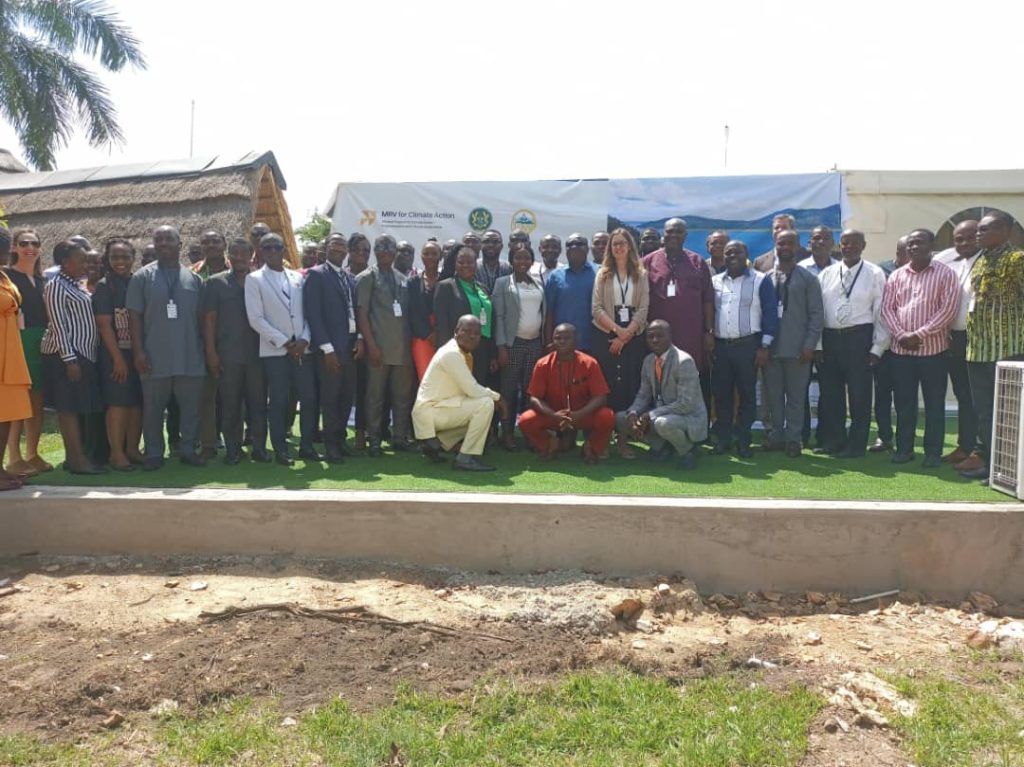By Edward Acquah
Akosombo (E/R), March 15, GNA- The Ministry of Environment, Science, Technology and Innovation (MESTI) has called for the strengthening of academic institutions to be able to train young people on how to report on the country’s climate actions.
The Ministry said students’ ability to understand the reporting system would ensure that when they got to work in institutions, the skills they had acquired would be utilised to enhance data collection on climate change at the administrative level.
Dr Peter Dery, the Director of Environment at the MESTI, made the call at a National Workshop to launch the Measurement, Reporting and Verification (MRV) for Climate Action in Ghana at Akosombo in the Eastern Region on Tuesday.
The Paris Agreement, a legally binding international treaty on climate change, enjoins member countries to report on actions taken and progress in climate change mitigation, adaptation measures and support provided or received.

Ghana is among the few countries that have consistently complied with the preparation and submission of the Biennial Update Report (BUR) and National Communication (NC) report by the United Nations Framework Convention on Climate Change (UNFCCC) reporting requirements.
The country has so far submitted four NCs, two BURs, and four Greenhouse Gas inventory reports to the UNFCCC.
Dr Dery said Ghana had developed several tools, including the Ghana Climate Hub (a web-based application to track climate actions), and budget codes for tracking public expenditure on climate.
He said the capacity of all institutions involved in the reporting process must be built to enable them to appreciate and understand changing developments in the reporting requirements.
“The tools that we were using will have to be recalibrated, updated and enhanced to ensure the test of time. We need to ensure that institutions are strengthened so that they can come to speed with the changes in requirements in terms of reporting,” Dr Dery said.
The MRV for Climate Action Programme, which is scheduled to end in March 2026, is being implemented in Ghana, the Gambia, Liberia and Togo.
The Project, implemented by Novasphere (an organisation involved in climate change solutions and sustainability) and funded by the Environment and Climate Change Canada, builds on the Climate Finance Support to address Carbon Emissions in West Africa project, which was implemented from 2019 to 2021.
Ms Jill Mills, the Senior Project Manager at Novasphere, said Canada was interested in identifying the challenges and priorities in the beneficiary countries and assisting them with the necessary tools to boost climate resilience.
The two-day National Workshop on the MRV for Climate Action will provide perspectives on the MRV Programme and discuss challenges, opportunities, and priorities for Ghana.
The workshop is expected to develop an Evergreen Roadmap for Ghana that identifies prioritised specific activities with objectives, outputs and intended outcomes.
At the workshop, the stakeholders agreed that despite Ghana making significant progress in its MRV reporting systems, it needed to improve particularly in the areas of institutional collaboration and decentralisation of the reporting mechanisms.
GNA